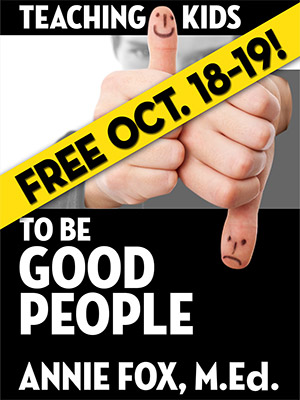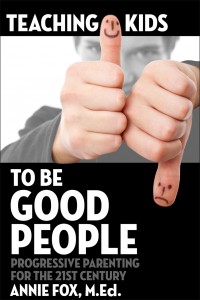|
|
October 26, 2012
I originally wrote a version of this article for TakePart.com, an interactive publisher and the digital arm of Participant Media, the company responsible for award-winning films such as An Inconvenient Truth, Food Inc., Waiting for Superman, Charlie Wilson’s War, Contagion and The Help.
 Falling into a less stressful school routine Back in early June, sweet summer beckoned with infinite possibilities. Hopefully some of the good ones became realities for you and your family. Either way, summer has come and gone, the frost is on the pumpkin, and we’re up to our knees in a new school year.
Now and always, you are your child’s most influential teacher. Which means that every day you have wonderful opportunities to lead and mentor so that next June you and your child can look back and say, “This has been a great year.”
But let’s not get ahead of ourselves. How about calling a family meeting to take stock of how things are going? Don’t like the term family meeting? Call it whatever you want, but before any more time flits by, gather the troops for an open conversation centered on what is working well with your Monday-Friday routine and what isn’t. This conversation may take 30 minutes (give or take), so everyone ought to be comfortable. Sitting around a table is good for that. It also encourages eye contact, always a plus when talking to someone. Appointing a “secretary” with a pen and paper to record ideas/agreements is very helpful. Oh, and snacks are always appreciated.
One more suggestion—during family meetings, unplug from all phones, etc. I realize many of us, and our connection-addicted kids, may feel uncomfortable without our phones, but unplug anyway. A digital-free family meeting sends a message: This discussion is important to our family and we want everyone to have a chance to speak and to be listened to with respect. That means no interruptions.With ground rules established and the clear goal to improve family relationships vs. playing a blame game, let the conversation begin.
School-related causes of family stress include:
- Getting out the door in the morning (including waking up on time, bathroom, getting breakfast, preparing lunch, getting schoolwork into backpacks, etc.)
- Afterschool activity schedule
- Afterschool childcare arrangements
- Afterschool pickup schedule
- Dinner
- Homework
- Bedtime
As you and your kids focus on each of these areas ask, “How is that working for you…son/daughter? Here’s how it is for me.” Be honest with each other. If, for example, mornings are tense because Brother can’t get himself up and out the door on time, then it would be foolish (OK, insane) to go through a whole school year like that. Something has to change. Talk about how it feels to wait for him, stressing, and then to have to drive to school like a crazy person because you’re late. Talk respectfully (no blaming or shaming). Then work together to create some solutions so the family doesn’t get locked into a continuous loop of unacceptable behavior.
The same goes with unacceptable parent behavior. If, for example, Dad agrees to pick up Daughter after sports practice at 5 p.m., but ninety percent of the time he arrives at 5:20 p.m., then something needs to change. (Are you listening, Dad?)
Talk and listen respectfully. Brainstorm new strategies. Hold each other accountable. That’s the way to conduct a successful family meeting. But don’t stop with the negative stuff! There are things that you and the kids are doing very well this school year. Take time at this meeting to acknowledge the cooperation and the successes. Those are the things your family wants to—and needs to—keep repeating.
 Vote! It's good modeling for your kids.

October 18, 2012
 FREE download for October 18-19, 2012, ''Teaching Kids to Be Good People'' by Annie Fox, M.Ed., My new parenting book Teaching Kids to Be Good People: Progressive Parenting for the 21st Century is receiving enthusiastic reviews. (Always so gratifying after all that work!) To celebrate the book’s launch, and to thank you for your support and ongoing interest in my work…
It’s a gift. No Kindle? No problem! Take the gift anyway. You can read the book just fine on your Mac, PC, iPod Touch, iPad, iPhone, Android, Blackberry, and Windows Phone 7 with this free Kindle Reader app.
I’m confident Teaching Kids to Be Good Peoplewill become an inspirational guide for socially conscious parents and teachers everywhere. Please accept my gift to you and your family.

October 7, 2012
We educators often talk about our standards for what it means to be a “good” student. Parents too, want their kids to be “good.” I’m fascinated by the gap between being “good” and having the social courage to do good, especially when doing the right thing puts one at risk for peer disapproval.
Educators and parents often give lip service to the importance of students’ doing the right thing (in academic as well as in social situations). But when it comes to teaching kids to be good people who actively seek opportunities to help others and speak out against injustice, how much actual teaching is being done? If we don’t prioritize the kind of character education our young people so desperately need, we’re failing them. We can do better. It’s a new school year. Let’s get on it.

October 4, 2012
 A very personal, practical, funny guide to challenging the culture of cruelty The gestation, labor, and heavy pushing are over! On October 3rd at 4:12 PM Teaching Kids to Be Good People was born, you can get your own Kindle version of my book right here. No Kindle? No problem! You can read the book just fine on your Mac, PC, iPod Touch, iPad, iPhone, Android, Blackberry, and Windows Phone 7 with this free Kindle Reader app. Or you can get the print edition here.
Why does anyone write a book? Serious writing can I can seriously tie your brain in knots so why go through that? I can only speak for myself. Part of it is for the glory. (I’m being honest because it’s the only way I know how to write.) When I hold one of my book and I read (great) reviews, I’m thrilled. And for that moment, I’m proud of what I’ve produced. I’m feeling that way now.
After 15 years of answering teen email, I’m convinced that many kids are missing the piece that motivates them to do the right thing. When their education primarily comes from their equally clueless peers, they’re in trouble. And so are we all. That’s why I wrote the book and why you need to read it. Our kids need us to help them develop a moral compass. And we need to do a much better job teaching them how.
Not all teachers are parents, but all parents are teachers. That’s convenient since positive character traits are teachable skills that need to be learned at home as well as at school. When we teach kids to be good people, we help the world become a safer, saner, more accepting place for all of us.
How do you define a “good person?” That’s precisely what I wanted to find out, so I crowdsourced the answer from hundreds of parents, therapists, counselors, educators and teens. Eight concepts kept reappearing in their thoughtful replies: Emotional intelligence, ethics, help, forgiveness, compassion, empathy, acceptance, and social courage—all essential, teachable skills. Teaching Kids to Be Good People will help you teach these skills to your children and/or your students. Hopefully, you will become so engaged in this process that you will inspire all the kids in your life to consciously choose to be kinder to one another.
I think of it as doing my bit for world peace. Does that work for you?
 — Older Posts »
| |















